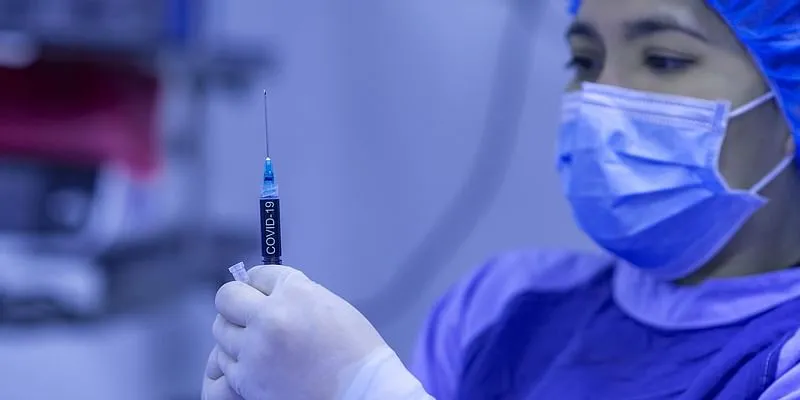Oxford-AstraZeneca's COVID vaccine can be available in 1st half of next year
Pune-based Serum Institute of India is conducting clinical trials of Oxford University-AstraZeneca's COVID-19 vaccine candidate Covishield in India.
Oxford-AstraZeneca's COVID-19 vaccine can be available in the country as early as the first half of next year, AstraZeneca Country President Gagandeep Singh said on Saturday.
Speaking at the 93rd annual convention of industry chamber FICCI, he said the vaccine has to be made available broadly, equitably, and in a timely manner in the current pandemic.
Pune-based Serum Institute of India is conducting clinical trials of Oxford University-AstraZeneca's COVID-19 vaccine candidate Covishield in India.
"We started working in April with and currently we are hoping to get emergency use authorisation approved and that can potentially mean that we could have something which is available as early as the first half of 2021," Singh said.
In order to make the vaccine available in a time manner the entity has signed close to three billion dosages supply agreements across the world, encompassing close to 160 countries, he noted.
"Due to the viral vector platform used to produce our vaccine, it can be manufactured on a relatively large scale and we are fortunate to partner with Serum, which has one of the largest manufacturing capacities," Singh said.
More importantly, this vaccine can be stored, transported and handled at comfortable refrigerated conditions (2 to 8 degrees) which is very comfortable to handle, meaning it can be administered very rapidly across the country, he added.
That's what we are hoping to do when we get approval from the authorities in India, he added.
, Bharat Biotech, and Serum Institute have currently applied to the DCGI for emergency authorisation of their vaccines in the country.

(Image source: Pixabay)
Transparent trials
Speaking at the event, Cadila Healthcare Chairman Pankaj R Patel said phase two trial of the company's vaccine has begun and the results had been encouraging. He said the vaccine is "stable and may not require very cold temperatures".
The Cadila chairman also said the company would like to complete phase three trials before applying for emergency authorisation.
He noted that the company's vaccine has been developed on a DNA platform so if the virus mutates, it should be able to come out with a new vaccine in a very short period of time.
Bharat Biotech CMD Krishna Ella said that it had been crucial for the companies to protect the volunteers.
He further said that the trials were completely transparent, and all data are enclosed. Ella noted that the company was conducting first kind of efficacy trial on its vaccine in the developing world.
"We have long experience in vaccines. Covaxin can be given to a six-month baby as well to someone who is 65 years old. Safety profile of the vaccine will be extremely good. We have filed for an emergency authorisation and left it to the government to review all those things. We are giving whatever data they want. We have done everything according to international standards."
Earlier speaking at the same event, NITI Aayog Member VK Paul said there will be no pressure on the drug regulator on the COVID-19 vaccine approval and the final call on allowing its emergency use approval will be made on scientific principles.
He also urged FICCI to work with the state governments to increase healthcare spending, enhance the human resources in healthcare by optimising the training in the private sector.
Paul also asked the industry body to work towards building mental health capacities in the country and called for higher private sector participation in ramping up health infrastructure.
Edited by Teja Lele








